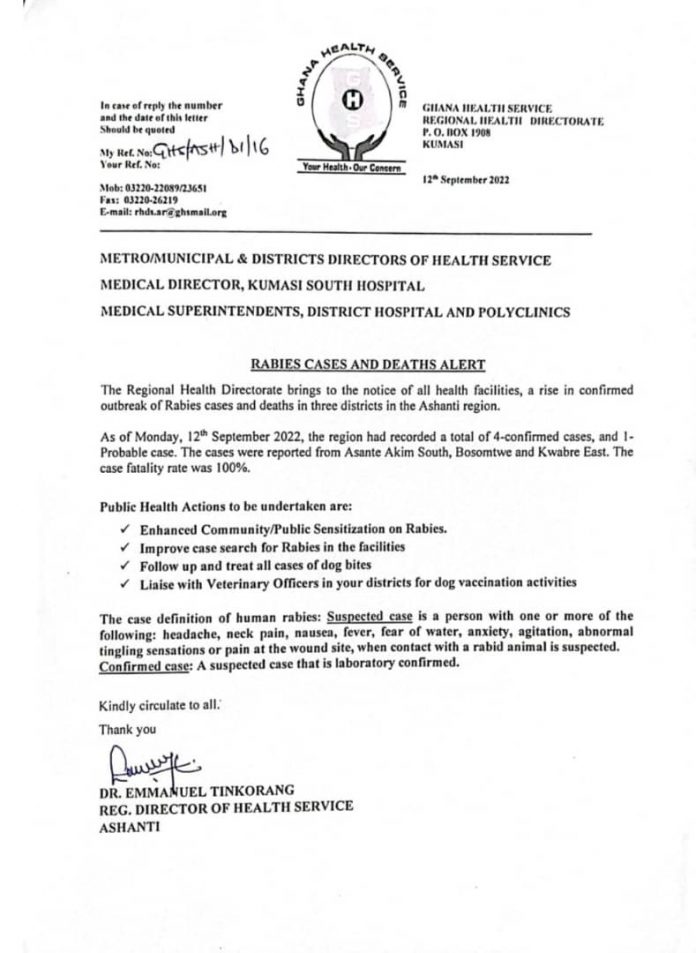GHS Alert: Rabies Detected in Humans in Ashanti
The Ashanti Regional Health Directorate has cautioned the public against the rising number of rabies cases in the region.
A statement signed by the Regional Director of Health, Dr Emmanuel Tenkorang, revealed that there had been four confirmed cases and one probable case as of Monday, 12 September 2022.
“The Regional Health Directorate brings to the notice of all health facilities, a rise in confirmed outbreak of rabies and deaths in three districts in the Ashanti Region”.
These cases were reported from the Bosomtwe, Asante Akim South and Kwabre East Districts and “the case fatality rate was 100%.”
Health facilities have been urged to look out for patients with symptoms such as headaches, neck pain, nausea, fever, fear of water, anxiety, agitation, abnormal tingling sensations or pain at the wound site or contact with a rabid animal and treat them as suspected cases.
Meanwhile, the Ghana Health Service(GHS) has outlined some public health actions to be undertaken:
- Enhanced community/public sensitization to rabies
- Improve case search for rabies in the facilities
- Follow up and treat all cases of dog bites
- Liaise with veterinary officers in districts for dog vaccination exercise
Below is the full statement

Rabies is a highly fatal but mostly neglected tropical disease that causes up to 60,000 deaths worldwide every year with Asia and Africa accounting for more than 95 per cent of these deaths.
Over 40 per cent of those affected are children.
According to the World Health Organization(WHO), 99 per cent of rabies cases result from the bite of rabid dogs and is almost always fatal once symptoms begin.
The disease is endemic in Ghana and it poses a major public health problem due to a large stray dog population across the country.
Although the government embarked on a campaign to vaccinate dogs against rabies across the country, the campaign was not sustained and running aground in 1994 till date due to a lack of sustainable funding and support.
This places the responsibility on individual dog owners to use their own resources to vaccinate their pets.
Although there is no documented standardized pricing for anti-rabies vaccination of dogs in Ghana, information from the veterinary division of the Ministry of Agriculture reveals that a shot of anti-rabies vaccine can cost up to 4 dollars per dog.
Currently, Ghana has partnered with WHO to achieve “Zero human rabies deaths by 2030” through mass dog vaccinations, targeting coverage of 70 per cent and above annually.



